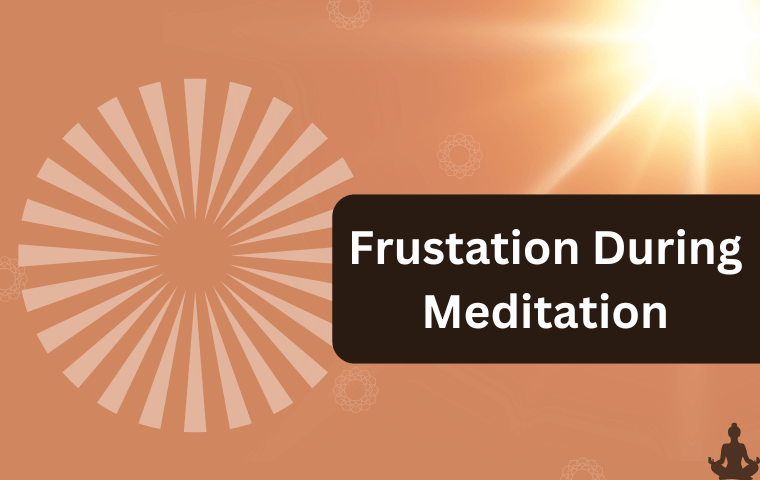Meditation is often seen as a peaceful, calming practice. However, for many beginners, it can quickly become frustrating. You might find yourself losing focus, feeling restless, or getting caught up in self-criticism. If you’ve been there, don’t worry – you’re not alone! Frustration is a common challenge during meditation, but with a small shift in mindset, you can overcome it. Let’s explore why frustration happens and how you can work through it.
Why Does Frustration Happen in Meditation?

Meditation brings your attention to the present moment, and it also exposes how easily the mind can wander. This isn’t a bad thing. In fact, it’s a sign of progress! When your mind wanders, it shows that you’re aware of your thoughts and that awareness is the first step toward calm. The frustration you feel often comes from unrealistic expectations about what meditation should be. It’s important to remember that meditation is not about controlling your thoughts or achieving a particular state of mind. It’s about noticing what’s going on in your mind without judgment.
Mind Wandering: A Natural Part of Meditation

If your mind wanders during meditation, don’t get upset. It happens to everyone, even experienced meditators. The key is to notice when it happens. This moment of awareness is actually the point of meditation!
When you realize your mind has drifted, gently guide your attention back to your focus, whether it’s your breath, a mantra, or another object of meditation. This act of refocusing is not a failure but part of the process. The more you practice, the easier it becomes to return your attention to your chosen object without frustration.
The Role of Concentration and Awareness
Meditation involves two important abilities: concentration and awareness. Concentration is focusing on a particular object, like your breath. Mindfulness is the skill of recognizing when your attention drifts.
Both are essential for meditation, and they work together. Concentration keeps you focused, and awareness helps you realize when you’ve lost that focus. Instead of thinking of wandering thoughts as a mistake, see them as a sign of progress in your meditation journey.
Accepting Frustration as Part of the Practice
Acceptance is key to overcoming frustration in meditation. When frustration arises, don’t try to push it away or judge it. Instead, accept it as part of your experience.
This can be difficult, but with practice, you’ll find that accepting thoughts and feelings as they are makes it easier to let go of them. Remember, meditation is not about forcing your mind to be quiet; it’s about accepting whatever comes up without resistance.
Shifting Your Expectations
Many people approach meditation with the expectation of achieving instant peace or calm. However, this can make the practice frustrating. Instead of focusing on the outcome, try to let go of expectations.
Your goal should be to stay present and observe your thoughts without judgment. Over time, you will experience moments of calm, but they will come naturally as a side effect of your practice, not because you forced them.
Combining Meditation with Other Practices

If meditation feels particularly frustrating, you might find it helpful to combine it with other yoga techniques. Breathing exercises, gentle yoga stretches, and relaxation practices can soothe both your body and mind prior to meditation. This approach can make meditation feel more accessible and effective, especially for beginners.
Transforming Frustration into Growth
Frustration during meditation is normal, especially when you’re just starting. The key is to change how you relate to those feelings. Instead of seeing frustration as something to avoid, recognize it as part of the process.
Show compassion for yourself, and keep in mind that meditation is a skill that unfolds with time and practice. The more you practice, the easier it will become to let go of frustration and simply be present with your thoughts. Keep going, and soon, you’ll find meditation becomes a peaceful, natural part of your routine.

